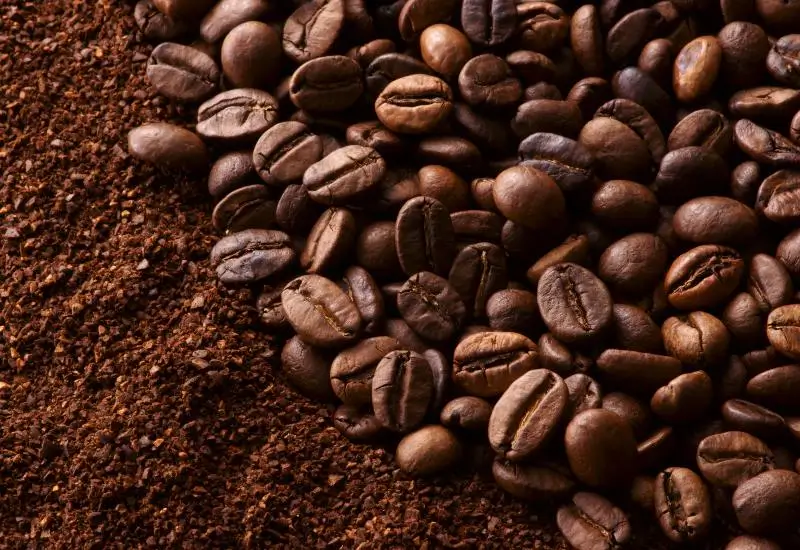
Picture this: It’s early morning, and the smell of freshly brewed coffee fills the air. You sip from your cup, scroll through your phone, and gear yourself up for the day. Once the coffee pot is empty, you’re left with a soggy heap of coffee grounds. In your haste to get out the door, you might dump them into the sink without a second thought.
Unfortunately, that seemingly harmless act may not be so harmless after all. Have you ever thought about what happens to those mushy coffee grounds once they disappear down the drain? You could be setting yourself up for an inconvenient and expensive plumbing disaster.
Why Coffee Grounds Don’t Belong in the Drain
Rinsing coffee grounds down the sink is riskier than you might expect. When mixed with water, these fine particles clump together, creating a dense, muddy paste. This paste easily sticks to the walls of your pipes, forming a lining that gradually narrows the pipe’s inner diameter.
Over time, the build-up of this gunky layer restricts water flow, leading to slow-draining sinks and even full-blown blockages. Stubborn coffee ground clogs often require professional drain cleaning, putting a damper on your daily routine.
But the trouble doesn’t end there. You might feel confident washing coffee grounds down the kitchen sink, thinking the garbage disposal will grind them up without issue. But globs of coffee grounds reduce the disposal’s grinding efficiency and may cause irreparable damage. This complication could force you to schedule emergency drain cleaning or warrant repairing or replacing your garbage disposal.
Other Foods that Don’t Belong in the Drain
Coffee grounds aren’t the only kitchen waste that can lead to significant problems. A long list of foods and substances can wreak havoc on your drains and should be avoided. Here’s an overview
of the most common culprits:
- Grease and oil: While these substances are runny when hot, they cool into a thick, gelatinous mass. Grease and oil cause some of the most severe clogs found in residential plumbing systems. They also cause problems at sewage treatment plants, resulting in expensive cleanup costs. Instead of rinsing used grease down the drain, pour it into an old can or jar, let it cool, and discard it in the trash.
- Fibrous foods: Celery, corn husks, onion skins, and potato peels have a nasty habit of entangling garbage disposal blades. This entanglement can lead to inefficient operation, increased wear and tear, and potential motor damage.
- Starchy foods: When you overcook pasta, rice, potatoes, or beans, they transform into a glue-like paste. This material can gum up your pipes, leading to troublesome clogs. It’s best to throw these items away rather than risk a blocked drain.
- Eggshells: A common myth is that grinding eggshells sharpens garbage disposal blades. Unfortunately, this is a misconception. In reality, the membrane layer can wrap around the shredder ring, leading to damage. Plus, the fine, sand-like particles of crushed eggshells can accumulate in your pipes, causing clogs.
- Hard materials: Some items are simply too tough for a garage disposal to handle. Animal bones, fruit pits, and similar items can blunt or even break the disposal’s inner workings, causing significant damage and potentially expensive repairs.
- Non-food items: Anything non-edible shouldn’t go down the drain. This includes twist ties, rubber bands, string, cigarette butts, produce stickers, and plant clippings. These items don’t decompose, instead lingering in your pipes and leading to blockages.
- Cleaning chemicals: Drain openers, lye, and other harsh chemical cleaners can damage your kitchen sink and garbage disposal. They can also spew dangerously from the sink when you run the disposal. If a kitchen clog occurs, try a plunger. If that doesn’t work, seek professional drain cleaning.
What Should I Do If I Put Coffee Grounds Down the Drain?
We all make mistakes. If you’ve accidentally sent coffee grounds down the drain a time or two, don’t panic. However, it’s important not to make this a habit. Consistently flushing coffee grounds down the drain could lead to recurring clogs. Fortunately, drain cleaning is always an option to get your pipes back in good shape.
Creative Uses for Coffee Grounds
Now that we’ve established the sink isn’t a suitable place for coffee grounds, what should you do with them? Sure, you could always toss them in the trash, but they have several other practical uses you may want to try. Here are some creative ways to repurpose coffee grounds:
- Fertilizer or compost: Coffee grounds are rich in nitrogen, making them an excellent addition to your garden soil or compost pile.
- Natural insect repellent: Coffee grounds naturally deter pests like ants and fleas. Sprinkle them in problem areas as an eco-friendly alternative to chemical insecticides.
- Odor neutralizer: The strong, pleasant aroma of coffee grounds makes them excellent at absorbing and neutralizing unpleasant smells. Place a dish of dry grounds in your refrigerator or pantry to keep odors at bay.
- Skin exfoliant: Mixed with coconut oil, coffee grounds become a fantastic natural exfoliant that leaves your skin feeling soft and revitalized. You can also add coffee grounds to homemade soap for an exfoliating factor and pleasant scent.
- Natural dye: Use coffee grounds to stain plain white paper, giving it an appealing antique appearance.
Puget Sound Plumbing and Heating is Here to Help
As discussed, it’s crucial to care for your plumbing system and avoid practices that lead to clogs. Being mindful of what goes down the drain can save you from unwelcome plumbing emergencies. But when issues arise, it’s reassuring to know you can always call Puget Sound Plumbing and Heating.
As a reliable plumbing partner with over 20 years of experience, we deliver superior work and ensure excellent customer satisfaction. Our family-owned business is based in the Seattle area and comprises a team of fully licensed technicians ready to assist with plumbing challenges 24/7. To request emergency drain cleaning or other plumbing services, please call us at (206) 938-3219 today.


